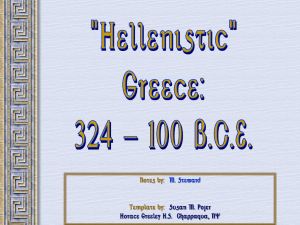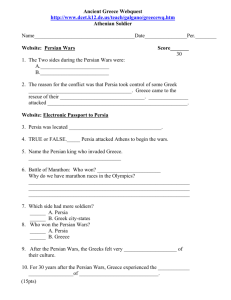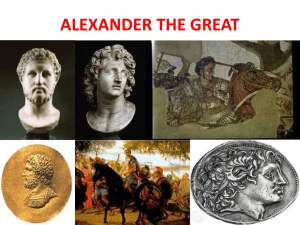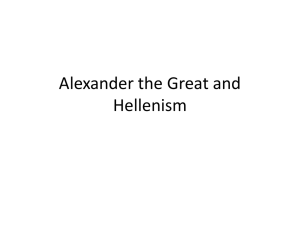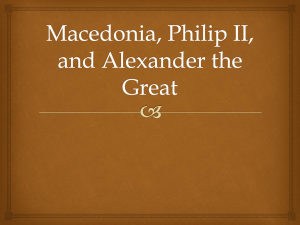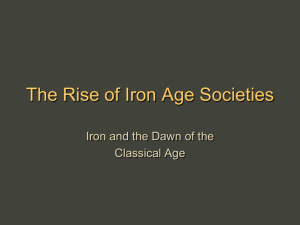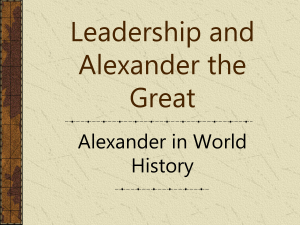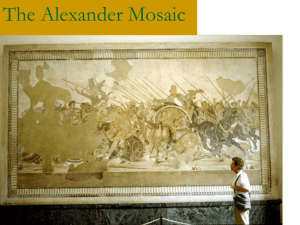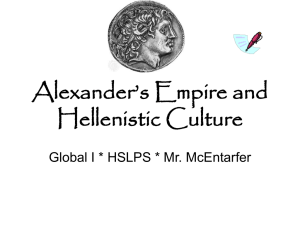chapter 6 section 3
advertisement
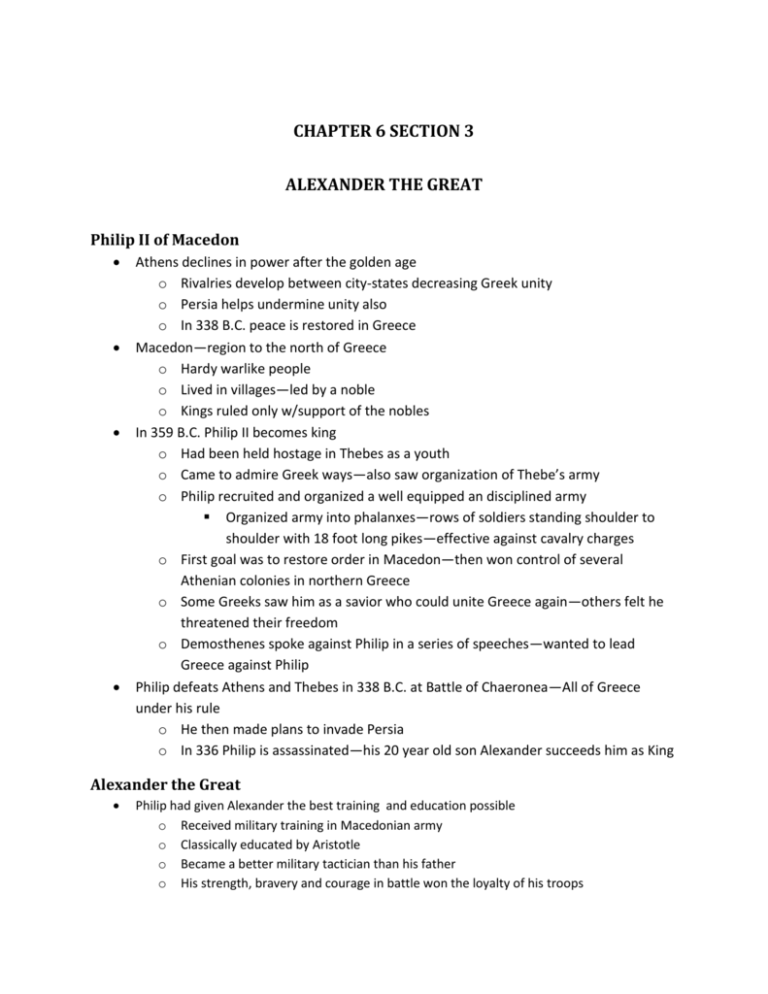
CHAPTER 6 SECTION 3 ALEXANDER THE GREAT Philip II of Macedon Athens declines in power after the golden age o Rivalries develop between city-states decreasing Greek unity o Persia helps undermine unity also o In 338 B.C. peace is restored in Greece Macedon—region to the north of Greece o Hardy warlike people o Lived in villages—led by a noble o Kings ruled only w/support of the nobles In 359 B.C. Philip II becomes king o Had been held hostage in Thebes as a youth o Came to admire Greek ways—also saw organization of Thebe’s army o Philip recruited and organized a well equipped an disciplined army Organized army into phalanxes—rows of soldiers standing shoulder to shoulder with 18 foot long pikes—effective against cavalry charges o First goal was to restore order in Macedon—then won control of several Athenian colonies in northern Greece o Some Greeks saw him as a savior who could unite Greece again—others felt he threatened their freedom o Demosthenes spoke against Philip in a series of speeches—wanted to lead Greece against Philip Philip defeats Athens and Thebes in 338 B.C. at Battle of Chaeronea—All of Greece under his rule o He then made plans to invade Persia o In 336 Philip is assassinated—his 20 year old son Alexander succeeds him as King Alexander the Great Philip had given Alexander the best training and education possible o Received military training in Macedonian army o Classically educated by Aristotle o Became a better military tactician than his father o His strength, bravery and courage in battle won the loyalty of his troops Alexander crushed the rebellions that broke out in Greece after Philips death By 331 B.C. he had destroyed Persia conquering Asia Minor, Syria, Egypt and Mesopotamia along the way Beyond Persia lay India—marched for 4 years towards the Indus River—here his men refused to go on and he was forced to turn back to Persia in 326 B.C. o Divides his army at Indian Ocean and sends them west by sea to explore the Persian Gulf and the meet him at Susa o Leads the rest through the desert where many die from exposure and lack of food and water—finally reached Susa in 324 B.C. By 332 B.C. problems spread throughout empire In Babylon Alexander becomes ill and dies in June of 323 B.C. at the age of 33 Beginnings of Hellenistic World In 13 years Alexander had rarely lost a battle and conquered much of the known world Alexander purposely spread the Greek culture wherever his armies marched o He founded many cities—many named Alexandria—Greeks and Macedonians settled in these cities o The Persians, Macedonians and Greeks all helped govern themselves making it easier on Alexander to keep power o To ensure Persian cooperation Alexander married two Persian princesses and had his general marry Persian women of the royal family and 10,000 of his troops married Persian women His reign spread Hellenistic—Greek—culture – or the combination of Mediterranean and Asian ideas and values 301 B.C. 3 generals divided empire into three kingdoms—Macedon, Egypt, Syria and several smaller ones o These kingdoms often fought each other and in 200 B.C. Rome invades Macedon and conquers most of Hellenistic empire
